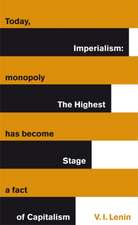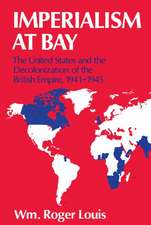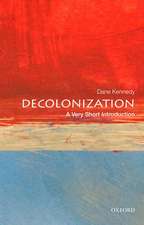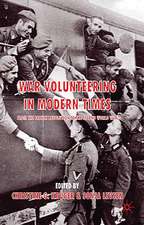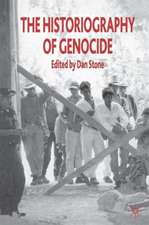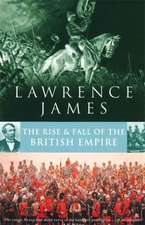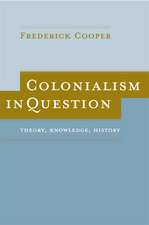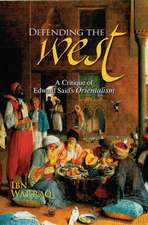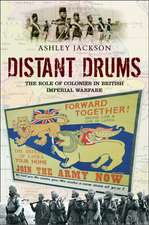How Empire Shaped Us
Editat de Professor Antoinette Burton, Dane Kennedyen Limba Engleză Paperback – 27 ian 2016
| Toate formatele și edițiile | Preț | Express |
|---|---|---|
| Paperback (1) | 179.98 lei 6-8 săpt. | |
| Bloomsbury Publishing – 27 ian 2016 | 179.98 lei 6-8 săpt. | |
| Hardback (1) | 715.00 lei 6-8 săpt. | |
| Bloomsbury Publishing – 27 ian 2016 | 715.00 lei 6-8 săpt. |
Preț: 179.98 lei
Nou
Puncte Express: 270
Preț estimativ în valută:
34.44€ • 35.83$ • 28.44£
34.44€ • 35.83$ • 28.44£
Carte tipărită la comandă
Livrare economică 14-28 aprilie
Preluare comenzi: 021 569.72.76
Specificații
ISBN-13: 9781474222976
ISBN-10: 1474222978
Pagini: 232
Dimensiuni: 156 x 234 x 15 mm
Greutate: 0.41 kg
Editura: Bloomsbury Publishing
Colecția Bloomsbury Academic
Locul publicării:London, United Kingdom
ISBN-10: 1474222978
Pagini: 232
Dimensiuni: 156 x 234 x 15 mm
Greutate: 0.41 kg
Editura: Bloomsbury Publishing
Colecția Bloomsbury Academic
Locul publicării:London, United Kingdom
Caracteristici
Features contributions from some of the leading historians of empire, including Linda Colley, John Darwin, Wiliam Roger Louis and John MacKenzie
Notă biografică
Antoinette Burton is Professor of History at the University of Illinois, USA. She has written widely on modern Britain and empire. Her most recent publications include A Primer for Teaching World History (2012) and Brown Over Black: Race and the Politics of Postcolonial Citation (2012).Dane Kennedy is Elmer Louis Kayser Professor of History and International Affairs at The George Washington University, USA. His most recent publications include The Last Blank Spaces: Exploring Africa and Australia (2013) and The Highly Civilized Man: Richard Burton and the Victorian World (2005).
Cuprins
Notes on ContributorsIntroduction1. From Empire to India and Back: a Career in History - Thomas Metcalf (University of California at Berkeley, USA)2. Seven Pivots Toward Empire - Wiliam Roger Louis (University of Texas, Austin, USA)3. Empire from Above and from Below - John MacKenzie (University of Lancaster, UK)4. Empire and Class: The Making of a History Boy - Richard N. Price (University of Maryland, USA)5. Inside/Outside: A Non-Native Caribbeanist's Journey - Bridget Brereton (University of the West Indies, Trinidad)6. With and Against the Grain - Catherine Hall (University College London, UK)7. In and Out of Empire: Old Labels and New Histories - Marilyn Lake (Melbourne University, Australia)8. An Education in Empire - Dane Kennedy (The George Washington University, USA)9. A Child of Decolonisation - Philippa Levine (University of Texas, Austin, USA)10. From South Asian Studies to Global History: Searching for Asian Perspectives - Shigeru Akita (University of Osaka, Japan)11. Crooked Lines and Zigzags: From the Neocolonial to the Colonial - Mrinalini Sinha (University of Michigan, USA)12. Some Intimacies of Anglo-American Empire - Antoinette Burton (University of Illinois, USA)13. Homes and Native Lands: Settler Colonialism, National Frames, and the Remaking of History - Adele Perry (University of Manitoba, Canada)14. Empire Made Me - Clare Anderson (University of Leicester, UK)15. Paths to the Past - Tony Ballantyne (University of Otago, New Zealand)16. Conversations with Caroline - Caroline Bressey (University College London, UK)17. Dis-Oriented in a Post-Imperial World - Jonathan Saha (Bristol University, UK)BibliographyIndex
Recenzii
How Empire Shaped Us . provides fascinating insights into the production of British imperial history at the intersections of the personal, political, and intellectual. As such, it offers a flavor of the personal investments, the embodied experiences, and the political passion that goes into intellectual labor, all of which get lost in the more traditional, historiographical accounts.
At the heart of How Empire Shaped Us, then, is an ongoing effort to renew imperial history by unsettling it-to distance the field from its imperialist origins through the pursuit of methodological and perspectival pluralism.
[This is] a stimulating and welcome book ... A rich and rewarding collection.
Read together, the essays provide a fascinating time-line of more than half a century ... Because of the accessible style and length of the essays, the book may well provide undergraduate students with a fresh entry point from which to familiarise themselves with the historiography and contentions of imperial history ... A rich and absorbing collection.
We get vividly presented the evolution of the discourse from its relatively simple beginnings to recent nuanced complexity ... This is the new history.
A dazzling line-up of academic heavy weights offer insights and vignettes to explain how they came to do what they do and write what they write.
This collection serves as a wonderful introduction to the broad field of British imperial history through the career-narratives of several generations of leading historians working on many different regions of the world. A valuable resource for students and scholars alike, it shows how the writing of imperial history was transformed in the aftermath of decolonization, and highlights the rich diversity of contemporary approaches to rewriting the history of the British empire.
A beautiful, insightful collection in which distinguished historians of empire reflect on the private and personal dynamics of their becoming - often against all odds - modern chroniclers of the imperial past. As an experiment in collective life-writing, it's a book that excavates the deep, subjective reservoirs which underwrite the histories we know as decolonization. The connections between the past and the present, and the public and the private, intermingle in these pages, generating wonderfully unexpected vignettes. For our own dark times, the plurality of voices recorded here present a dazzling vindication of the practices of history.
Antoinette Burton and Dane Kennedy have hit upon the wonderfully original idea of asking fifteen other historians of the British Empire to contribute (along with them) essays on why and how they came to work on this vast topic, and on how empire has impacted on their own respective lives and careers. Scholars rarely get invited to attempt autobiography, and this explains some of the marked freshness and sense of involvement of the pieces gathered together here. But these are not exercises in self-indulgence. Rather, we are introduced to a sequence of scholars - born over a space of fifty years - who address different parts of the Empire and espouse different methodologies, and we learn about how the accidents of birth, place, friendships, chosen mentors, and influential books can all shape the minds and choices of historians. An absorbing read.
At the heart of How Empire Shaped Us, then, is an ongoing effort to renew imperial history by unsettling it-to distance the field from its imperialist origins through the pursuit of methodological and perspectival pluralism.
[This is] a stimulating and welcome book ... A rich and rewarding collection.
Read together, the essays provide a fascinating time-line of more than half a century ... Because of the accessible style and length of the essays, the book may well provide undergraduate students with a fresh entry point from which to familiarise themselves with the historiography and contentions of imperial history ... A rich and absorbing collection.
We get vividly presented the evolution of the discourse from its relatively simple beginnings to recent nuanced complexity ... This is the new history.
A dazzling line-up of academic heavy weights offer insights and vignettes to explain how they came to do what they do and write what they write.
This collection serves as a wonderful introduction to the broad field of British imperial history through the career-narratives of several generations of leading historians working on many different regions of the world. A valuable resource for students and scholars alike, it shows how the writing of imperial history was transformed in the aftermath of decolonization, and highlights the rich diversity of contemporary approaches to rewriting the history of the British empire.
A beautiful, insightful collection in which distinguished historians of empire reflect on the private and personal dynamics of their becoming - often against all odds - modern chroniclers of the imperial past. As an experiment in collective life-writing, it's a book that excavates the deep, subjective reservoirs which underwrite the histories we know as decolonization. The connections between the past and the present, and the public and the private, intermingle in these pages, generating wonderfully unexpected vignettes. For our own dark times, the plurality of voices recorded here present a dazzling vindication of the practices of history.
Antoinette Burton and Dane Kennedy have hit upon the wonderfully original idea of asking fifteen other historians of the British Empire to contribute (along with them) essays on why and how they came to work on this vast topic, and on how empire has impacted on their own respective lives and careers. Scholars rarely get invited to attempt autobiography, and this explains some of the marked freshness and sense of involvement of the pieces gathered together here. But these are not exercises in self-indulgence. Rather, we are introduced to a sequence of scholars - born over a space of fifty years - who address different parts of the Empire and espouse different methodologies, and we learn about how the accidents of birth, place, friendships, chosen mentors, and influential books can all shape the minds and choices of historians. An absorbing read.

